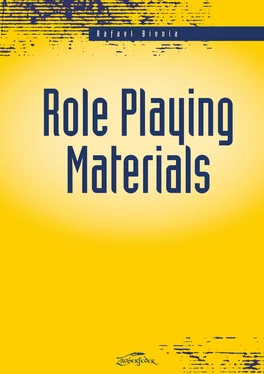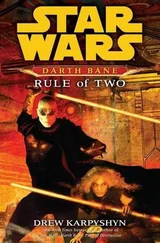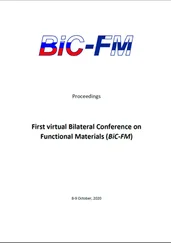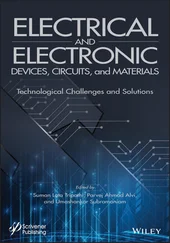The book next to the dictionary is Latour’s (2005) Reassembling the Social . I use it as my tour guide in working with actor-network theory. Actor-network theory roots in the work of Callon (1986a), Latour (1987, 2005), and Law (1987, 2004) from the fields of science, technology, and society studies. It is in the tradition of social constructivist studies that do not primarily answer the question “What is technology?” but rather seek to trace the process of “how to make technology” (emphasis in original, Bijker, 2010, p. 63). Following these roots, this study does not aim to answer what role playing is in general or what a role-playing game is in particular, but aims to answer the guiding question how materials make role playing work. To answer this question, this study required qualitative empirical data and links its results to specific sites instead of generalizations. The focus is on role playing as a process. Actor-network theory helps to reconstruct how processes came into being, and to recognize how they changed in order to produce role playing. Role playing comes into being in and by a collective of heterogeneous actors. With the word heterogeneous I stress the point that any element can be an actor when it effects social change, be it the fictional world, game rules, or materials.
Although actor-network theory scholars emphasize the agnostic position of a researcher towards preconceived notions of processes and ask that the researcher start the study by following the actor, there is a small group of “concepts”. I present the following concepts in more detail, because I want to create a bridge to readers from game studies who might not be familiar with actor-network theory. The first difficulty of actor-network theory is that it is less a theory than a methodology (follow the actors) or a language. The following concepts—actor, network, agency, mediator, and intermediary—are not definitions but words that can refer to empirical phenomena. They are empty shells without empirical evidence that the researcher has to gather in field work (Latour, 2005; Sayes, 2014; Venturini, 2010). Therefore, I put concepts into quotation marks, because they are words. These words form an infra-language or vocabulary with which the analyst can describe an empirical phenomenon, such as role playing, because “they don’t designate what is being mapped, but how it is possible to map anything from such a territory” (Latour, 2005, p. 174). In this regard, actor-network theory continues the tradition of social constructivism in that it provides a vocabulary for methodology. Moreover, the legacy of post-structuralism in actor-network theory becomes apparent with the necessity to reflect language when it connects concrete reality with abstract ideas. Law (2009) suggests that “actor-network theory can also be understood as an empirical version of post-structuralism.” (p. 6). Thus, the examination of concepts as words is one methodological step, because the relation between words and what is being mapped should not be taken for granted. Before I can use a word as an analytical tool, I need to establish a relation to an empirical fact and reflect instead of looking for data that fits to established concepts.
The book Reassembling the Social leans against my computer monitor that stores most of my notes, data samples, and previous versions of this book. I say “most” because in 2012 I began to draft my chapters with pencil and paper. What happened was that my writing slowed down. I am a fast writer with a typewriter or computer keyboard, but writing by hand forced the word count to drop. I gained time to think more before I wrote down the words. This new collaboration—hand, pencil, and paper—changed the way I was writing the book. In its core, this example of writing makes a point about an “actor”.
An actor makes a difference to other elements .Actor is a word that refers to an element that is part of a process, for example a pencil in the process of writing. Again, actor is a word that requires empirical evidence to be of analytical value, because an actor ties to a process that the researcher observes at a specific site. A researcher can only speak of an actor when there is empirical evidence of its action. Evidence or trace of an action is observable, because “anything that does modify a state of affairs by making a difference is an actor” (Latour, 2005, p. 71). Thus, it remains uncertain what an actor is unless there is a trace of action. When there is a trace, it is not because there is an actor, but because an actor works .
Because of this uncertainty, actor-network theory is not a theory in the sense of a stable framework that answers ontological questions, such as what an actor is, but a mode of inquiry or a tool that encourages rethinking whether the phenomenon is what it seems to be. In the example of writing with pen and paper, is it the human who is the sole actor responsible for the process of writing, or could it be otherwise?
An actor is “something that acts or to which activity is granted by others. It implies no special motivation of human individual actors, nor of humans in general” (Latour, 1996b, p. 375). The pencil is an actor, because it made me write differently. The paper itself can be an actor, too. But actor-network theory makes me aware that effects do not originate in an intrinsic essence of one element but result from the collaboration or cooperation of actors (Latour, 2011). It is the pencil, paper, and hand that change my writing compared to typing on a keyboard.
An actor has a recognizable identity only through its actions in collaboration with other actors. I can speak of the pencil as an actor in relation to hand and paper when they write together. At this point, the inter-relation between vocabulary and empirical data becomes apparent. When I sit at my desktop and remove one of these collaborators from the process, writing does not work anymore. The pencil does not write without paper or hand, the paper does not show traces of words without pencil or hand, the hand does not write without a writing device or a piece of paper. I cannot talk about a collaboration of actors anymore, because the identity-giving action of writing is missing here, and it is the identity-giving action in a collective that allows me to speak of actors, be they pencils or (later) materials in role-playing games.
This is the reason why actor-network theory does not define an actor as an element that has an intrinsic essence. An analyst refers to a pencil as a material actor, when there is a trace of action. When the graphite core that is part of the pencil collaborates with the paper and follows the movements and pressure of the hand. Non-human actors, such as pencils, “are endowed with a certain set of competencies by the network that they have lined up behind them,” for example the graphite that makes the pencil, and at “the same time, they demand a certain set of competencies by the actors they line up, in turn” (Sayes, 2014, p. 138). The pencil demands from the hand the competency to write. This competency is not inherent in a hand but is the result of years of training.
Before I introduce “network”, which refers here to the inter-relation of pencil and hand, in more detail, I need to explain how it is possible to say that unconscious elements like pencils demand something.
Human, non-human, and material actors .Above, I wrote that an actor is any element that acts in relation to other elements. This understanding works to recognize actors that act, but are non-humans. So far, players, designers, and researchers have understood role playing as a human endeavor, as I will elaborate in more detail below. But if non-human actors can be part of action, this study needs not only to explore how the group of non-human actors cooperate with other actors in role-playing processes, but also how to talk about this process without replacing anthropocentricism with materialism.
Читать дальше












